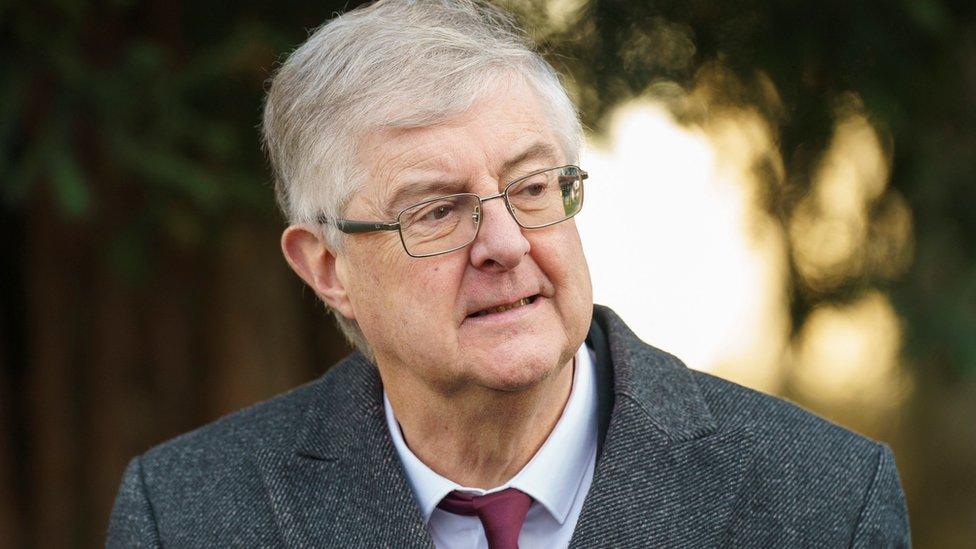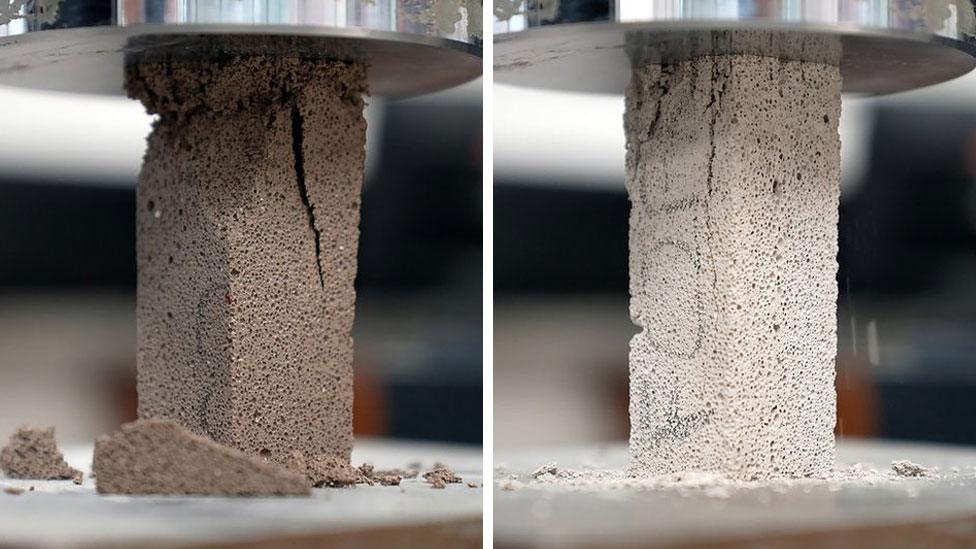Mark Drakeford: Raac concrete not danger by itself
- Published

So far two schools in Wales have been affected
A type of concrete at the centre of a schools crisis does not pose a danger by itself, Wales' first minister has said.
Work is ongoing to see if more schools need to be closed amid fears crumbly concrete could cause parts of buildings to collapse.
But Mark Drakeford said the material can be properly managed and maintained.
He promised to update parents on the situation in schools in Wales by the end of Friday.
Since Westminster closed more than 100 education buildings in England last week, the Welsh government has been asking councils for updates on the state of Raac in its schools.
So far two schools have been affected - both on Anglesey. No further schools have yet been found to have a problem, although work is continuing to check.
Wards were also shut at Withybush Hospital, in Haverfordwest, in August.
The Health and Safety Executive has warned that reinforced autoclaved aerated concrete (Raac) is liable to "collapse with little or no notice".
The lightweight form of precast concrete was used in many public sector buildings in the UK from the mid-1960s to the mid-1980s.
UK government guidance for schools in England said there have been "sudden collapses of Raac panels, external in roofs that appeared to be in good condition".
Speaking to Radio Wales Breakfast, Mr Drakeford said: "Raac that is properly manufactured, properly installed and properly maintained is not by itself a source of danger.
"Many, many buildings have Raac in them and they're not a cause for concern.
"What you have to do is to keep inspecting it to make sure that you know the state that it is in. For some buildings there comes a point where a danger may be caused."
So far no further school has been identified in Wales as having a problem with Raac, the first minister said.

Mark Drakeford said RAAC can be maintained.
Mr Drakeford said an update on Friday "will give people assurances about schools that they need", although he said inspections could continue beyond that date.
Sources have told BBC Wales that local authorities were asked to get back to ministers by Wednesday next week.
"If there are residual inspections that are still being carried out into next week, then we will publish that information as soon as it's confirmed," the first minister said.
Mr Drakeford is chairing a ministerial group on the issue which he says has met "every day this week".
The Cardiff West Labour MS called for the Treasury in London to pay for any work that is required to fix the issue.
"The rulebook on this is crystal clear. If a liability occurs for something that happened before devolution itself took place then the UK government remains responsible for that," he added.
'Labour have not acted swiftly'
UK Conservative ministers, themselves under fire from Labour for the extent of the problem in England, have criticised the Welsh government for the speed with which it has tackled the issue.
In turn, the Welsh government has accused the UK government of only providing written evidence of the increased safety risk of Raac last weekend.
In the House of Commons on Thursday, Leader of the House of Commons Penny Mordaunt said the Welsh government has not acted swiftly to deal with Raac.
"This current education secretary... put the safety of children first," she said.
"In contrast to Labour in Wales, who have not acted as swiftly despite similar warnings. The health and safety priorities of the Labour government in Wales appear to be focused on people buying meal deals as opposed to a lump of concrete falling on a child's head."
On Radio Wales Mr Drakeford said: "On the 30th of August, we knew that there wasn't a school in Wales that was giving us a cause for concern. On the 31st of August, the Department of Education in England changed the way in which they interpreted those inspections.
"That's why we're now having to go back and relook at everything to see whether we think, against that new information, there are areas of concern in Wales."
Related topics
- Published6 September 2023

- Published6 September 2023
